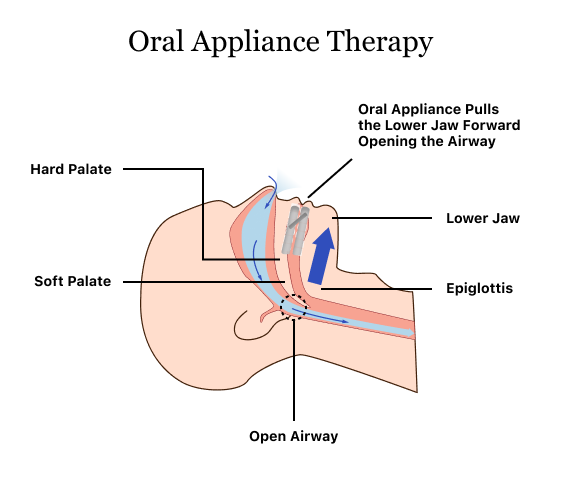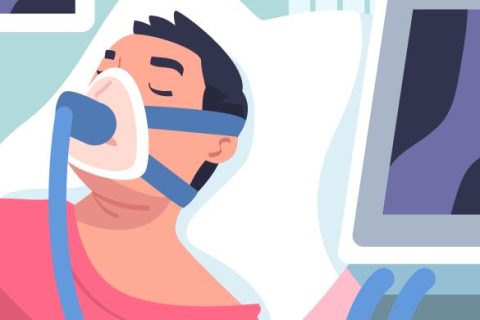Philips CPAP Alternatives
People may need Philips CPAP alternatives after Philips recalled thousands of machines because of potential cancer, health problems and other safety risks. CPAP alternatives may also be helpful for people who cannot tolerate CPAP treatment or have less severe sleep apnea.
Alternative CPAP Machines
Philips recalled certain models of sleep apnea machines in June 2021 because sound abatement foam in their CPAPs may cause cancer, lung problems and other side effects. The U.S. Federal Drug Administration issued another recall in October 2022 because of magnetic CPAP and BiPAP masks that could interfere with metallic implants, potentially causing serious injuries.
Sleep apnea is a serious condition and some people can’t stop CPAP treatment. Fortunately, Philips second generation DreamStation2 isn’t a part of the Philips CPAP recall, and other brands are also available.
- ResMed AirSense 10 CPAP
- Z2 Auto Travel CPAP Machine
- Philips Respironics DreamStation 2 Auto
- DeVilbiss IntelliPAP 2 Auto Adjust CPAP
- F&P SleepStyle Auto CPAP
When looking for a new CPAP machine, your doctor or insurance company may have some recommendations. The most effective CPAP machine for you depends on your individual needs.
Make sure to compare machines by price, noise level and weight. Each machine may also have extra features such as an included humidifier, auto adjust pressure, Bluetooth capabilities, better accessories and data tracking.
Some people who developed cancer and serious respiratory problems after using a recalled machine are filing Philips CPAP lawsuits. Make sure to talk to a lawyer about keeping your recalled machine for evidence before returning it.
According to a 2022 study evaluating 2,571 patient injuries associated with CPAP between 2014 and 2021, 4.62% of patients reported cancer development after use, the second most commonly documented issue. As of December 31, 2022, the FDA had received more than 98,000 medical device reports of side effects linked to PE-PUR foam. Reported side effects include serious adverse effects such as asthma, breathing problems, cancer, chest pain, infection, nodules, pneumonia and respiratory problems, as well as 346 related deaths.
BiPAP Machines
BiPAP machines are one of the most popular alternatives to CPAP for sleep apnea. Like a Philips CPAP machine, a bilevel positive airway pressure machine (BiPAP) helps people with sleep apnea or other breathing problems. CPAP machines use the same amount of pressure when people breathe in and out. A BiPAP machine uses higher pressure when a person breathes in and less pressure when they breathe out.
Philips also recalled some of its BiPAP machines, but some other brands may be available.
BiPAP machines are helpful for people with sleep apnea, chronic obstructive pulmonary disorder (COPD), asthma and poor breathing after an operation. BiPAP may be a good option for people who don’t tolerate CPAP well.
APAP Machines
Automatic Positive Airway Pressure (APAP) systems are similar to CPAP machines in that both deliver continuous air pressure. Where they differ is in their responsiveness to the breathing patterns of the patient.
While CPAP machines consistently deliver the same amount of air pressure for the setting it is on, APAP machines are designed to automatically adjust the amount of air pressure delivered throughout the night.
CPAP and APAP machines can both offer health benefits. But APAP machines can be more comfortable and offer a more customized experience as they continually adjust during sleep cycles and for breathing changes like during a cold or an allergy flare up.
Lifestyle Changes
People with mild sleep apnea may be able to address sleep apnea with the help of some lifestyle changes such as getting more exercise or quitting smoking. Improvements to overall health have been shown to have a beneficial impact on sleep apnea symptoms.
- Quitting smoking
- Losing weight
- Sleeping on your side instead of on your back
- Quitting alcohol
- Getting more exercise
- Using nasal spray or decongestants to help you breathe
- Using a foam or plastic device (positional therapy) to keep you from sleeping on your back
- Using a cervical pillow to extend your neck and keep your airway open while you sleep
Make sure you ask your medical provider whether lifestyle changes may help your sleep apnea symptoms before stopping CPAP treatment. If your sleep apnea is moderate or severe, these options might not work for you. Your doctor may advise making some or all of these lifestyle changes in conjunction with continued CPAP use.
Oral Appliances
Oral appliances can be a cost-effective CPAP alternative. Oral appliances are removable devices that a person wears during sleep, such as a mouth guard. These appliances support the jaw or the tongue to keep a person’s airway open.

Two types of oral appliances include: Mandibular repositioning devices to reposition the lower jaw and a tongue-retaining device to hold the tongue in place. These appliances have to be custom fitted for each patient, according to Penn Medicine.
Sleep specialists and dentists work together to help create custom appliances. Like lifestyle changes, oral appliances work better for people with less severe sleep apnea.
Surgery
If sleep apnea hasn’t responded to more conservative treatment or CPAP, a doctor may recommend surgery. Many of these procedures are outpatient procedures.
Surgical procedure to help sleep apnea include:
- Hypoglossal nerve stimulators: Hypoglossal nerve stimulators are devices implanted on the right side of the chest under the skin. Electrodes travel from the device to a nerve in the neck and the muscles between the ribs. A remote control stimulates the hypoglossal nerve and makes the tongue move out of the way during sleep.
- Mandibular/maxillary advancement surgery: Mandibular/maxillary advancement surgery corrects throat obstructions or facial abnormalities that may contribute to obstructive sleep apnea. It’s a more invasive procedure that doctors usually only recommend for people with severe sleep apnea and face and head abnormalities.
- Nasal surgery: Nasal surgery corrects a deviated septum or other of nasal obstructions.
- Somnoplasty: Somnoplasty uses radiofrequency energy to reduce upper airway soft tissues such as the uvula, soft palate or base of the tongue to unblock the airway.
- Tonsillectomy: Tonsillectomy removes obstructive tissue in the back of the throat that is a common cause of sleep apnea in children.
- Uvulopalatopharyngoplasty (UPPP): Uvulopalatopharyngoplasty (UPPP) removes soft tissue on the back of the palate and throat to widen the airway close to the throat opening.
Your doctor will determine if there is a specific anatomical cause of your sleep apnea that should be addressed with surgery. Your doctor will also review your medical history for other medical conditions and physiological factors that will determine if you are eligible for surgery.
Choosing a CPAP Alternative
The best alternative to a CPAP machine depends on an individual patient’s needs. Factors such as how severe your sleep apnea is, how well you tolerate CPAP therapy and what your lifestyle is like will help your doctor discuss CPAP alternatives with you.
When you talk to your medical provider, make sure you tell them about any CPAP side effects you may have suffered, your sleep patterns and how willing you are to make lifestyle changes.
Sometimes finding the right CPAP alternative may involve a little trial and error. An adaptive servo-ventilation machine, for instance, can also be used to treat sleep apnea. The difference between CPAP and ASV is the way the pressurized air is delivered. An ASV dynamically adjusts the air pressure based on the user’s needs. The CPAP machine delivers air at a constant level.
Make sure to keep your medical provider up-to-date on how your sleep apnea treatment plan is working for you and you can work with your medical provider to make changes as necessary.
Calling this number connects you with a Drugwatch representative. We will direct you to one of our trusted legal partners for a free case review.
Drugwatch's trusted legal partners support the organization's mission to keep people safe from dangerous drugs and medical devices. For more information, visit our partners page.



